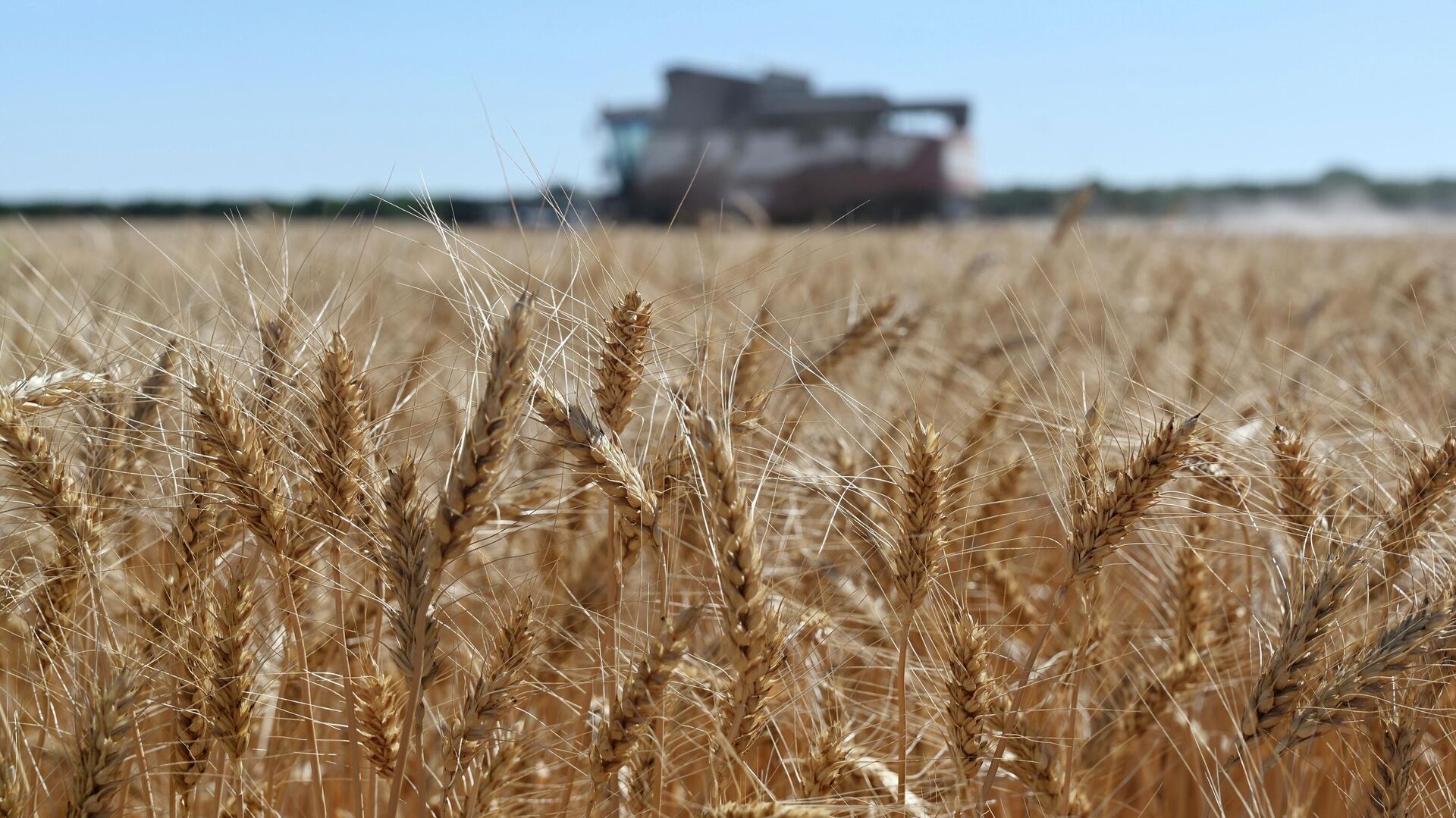Russia Had No Opportunity Yet to Send Food as Part of Grain Deal, Russian Envoy to UN Says
10:18 GMT 10.02.2023 (Updated: 12:34 GMT 17.07.2023)

© AP Photo
Subscribe
UNITED NATIONS (Sputnik) - Russia has not yet been able to export any food as part of the grain deal, as seizures and general licenses issued by the West for Russian goods are a sham and do not allow exporting products, Russian Permanent Representative to the United Nations Vasily Nebenzia said in an interview with Sputnik.
"For more than half a year of the Russia-UN memorandum, not a single grain and almost nothing of fertilizers have been sent through this line. And this is despite the demand and need for Russian products, which everyone admits," Nebenzia said.
The diplomat said that illegal unilateral Western sanctions imposed on Russia on an unprecedented scale prevent this demand from being met.
"Since Western sanctions regimes are legally binding for the operators of these countries and are a serious punitive tool for those who try to circumvent them, all these pseudo-seizures and general licenses are a sham that in no way guarantees freedom of action in the business environment," he added.
Prospects for the extension of the grain deal will depend on whether progress in the implementation of both of its part is equal, Nebenzia stressed.
"A positive decision on the unhindered extension of the grain deal would be facilitated by the fulfillment by all interested parties of a simple condition — the achievement of equal progress in the implementation of the two agreements signed last July in Istanbul," he said.
On July 22, the deal brokered by Turkey and the United Nations was signed by Russia and Ukraine in order to unblock shipments of grain, food and fertilizer in the Black Sea despite hostilities. The agreement was initially set to expire on November 19, with a possibility of extension if signatories consent. It was extended for 120 days on November 17.
Russian President Vladimir Putin has repeatedly said that most vessels carrying Ukrainian grain do not reach the world's poorest countries and have ended up in Europe. Putin has also voiced concerns that Russian grain and fertilizer products are not entering the global markets as stipulated by the agreement.
On Thursday, Ukrainian Economy Minister Yulia Svyrydenko said that Kiev sought to expand the grain deal and add provisions on steel supplies to it.
It is too premature to talk about the prospects for including a clause on steel supplies in the grain deal until the full implementation of existing provisions is ensured, Nebenzia said.
"Before discussing the expansion of the Black Sea agreements to other commodity items, such as steel, it is necessary to ensure the full implementation of those that have already been signed," Nebenzia said.
Moscow has repeatedly said that the Russian part of the deal has not yet been implemented, the diplomat recalled.
"Speaking about the steel industry, I would like to draw your attention to the situation with primarily of Russian, and not Ukrainian, metallurgists. About 30-40% of steel produced in Russia was exported, but now the European market is closed. Establishing alternative supply routes will not be quick," the permanent representative added.
Nebenzia stressed that Kiev sabotages the launch of the Togliatti-Odessa ammonia pipeline, used to export Russian ammonia, and puts forward new conditions.
"Kiev sabotages the launch of the Togliatti-Odessa ammonia pipeline, setting conditions outside the framework of the Istanbul agreements," official said.
The Russian Foreign Ministry has repeatedly said that the UN is inactive in resuming the export of Russian ammonia via the Togliatti-Odessa pipeline. The Black Sea Initiative provided for the resumption of the export of ammonia from the port of Yuzhne. Such export of fertilizers, including ammonia, was supposed to begin simultaneously with the transportation of Ukrainian food, the Russian Foreign Ministry said, noting that no additional agreements in this regard should be required.
